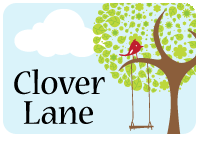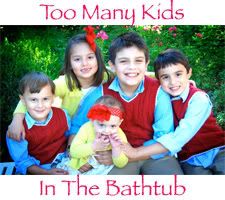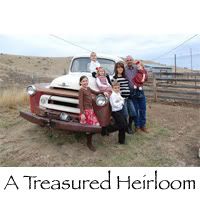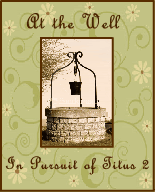We have been attracted to an "off-the-grid" lifestyle for years. We have never, of course, had the courage to take that step, nor the finances to make it a reality. But, as of late, our desires and God's open doors seem to be lining up for us to make this bold step.
Are you familiar with the "off-the-grid" lifestyle? Below, you will find an overview from Wikipedia. In the next year or two, I will be regularly updating this blog with our journey toward off-the-grid living.
Let me tell you, I am very aware there will be many ups and downs in this process, and I am quite sure many of these I can't even anticipate, but we are committed and excited about the journey. Changing this city-girl, bubble bath loving, appliance abusing, electricity guzzler into the conscientious environmentally aware, energy saver I know I should be, is going to be an interesting, sometimes painful process.
Stay tuned for Part One: The Mountain, to live vicariously through us if you don't have the courage (or desire) to do it yourself. If nothing else, I imagine, there will be a lot of drama and laughter to be had by all.
(From Wikipedia:)
The term off-the-grid (OTG) or off-grid refers to living in a self-sufficient manner without reliance on one or more public utilities.
Off-the-grid homes are autonomous —they do not rely on municipal water supply, sewer, natural gas, electrical power grid or similar utility services. A true "off the grid" or "off-grid" house is able to operate completely independently of all traditional public utility services. The idea has been recently popularized by certain celebrities including Ed Begley, Jr. who stars in Living With Ed television show on the Home & Garden Television network. Actress Darryl Hannah also promotes "off-grid" living and constructed her home in Colorado according to those principles.
Electrical power
Electrical power can be generated on-site with renewable energy sources such as solar, wind or geothermal; with a generator and adequate fuel reserves; or simply done without, as in Amish communities. Such electricity system is called a stand-alone power system.
Water
On-site water sources can include a well, stream, or lake. Depending on the water source, this may include pumps and/or filtration. Rainwater can also be harvested.
Popularity
On 13 April 2006, USA Today reported that there were "some 180,000 families living off-grid, a figure that has jumped 33% a year for a decade," and cited Richard Perez, publisher of Home Power Magazine,as the source. Assuming the same rate of growth, there would be a quarter million off-grid households in the United States by late 2007. Because many third-world citizens have never had the chance to go on the grid, current estimates are that 1.7 billion people live off-grid worldwide.
Environmental impact
The State of California is encouraging solar and wind power generation that is connected to the electrical grid to avoid the use of toxic lead acid batteries for night time storage. Grid-tie systems are more expensive due to the extra hardware costs (such as a grid-tie inverter) especially when old car batteries that can no longer supply enough current to start a car are re-used.
Going off-grid can be done for altruistic reasons or to lower the environmental impact of living, as the typically limited amount of on-site renewable energy available is an incentive to reduce its use.
It is often done to residential buildings only occasionally occupied, such as vacation cabins, to avoid high initial costs of traditional utility connections.
Other persons choose to live in houses where the cost of outside utilities is prohibitive, or such a distance away as to be impractical. In his book "How to live off-grid" Nick Rosen lists seven reasons for going off-grid. The top two are saving money, and reducing the carbon footprint. Others include survivalism, preparing for the collapse of the oil economy and bringing life back to the countryside.
Economic consideration
See also: Grid parity
In situations where grid parity has been reached it becomes cheaper to generate one's own electricity rather than purchasing it from the grid. This depends on equipment costs, the availability of renewable energy sources (wind,sun) and the cost of a grid connection. For example, in certain remote areas a grid connection would be prohibitively expensive, resulting in grid parity being reached immediately.
We are on our way friends! And though many of you already thought we might be a little crazy (homeschooling,etc.), I am quite sure this move will confirm the notion! :)
Subscribe to:
Post Comments (Atom)































5 comments:
I'm so curious. Would you still use a car? Is it that extreme? And what about blogging? Blogging, Tara, blogging!
Holy guacamole! I can't even fathom...I look forward to reading about your conversion. :)
Love you!!!
i cant WAIT to hear more! are you busy tomorrow or wednesday? lets get together if you can!!!
Tara, Tara, Tara. I have so much to learn from you. I can't wait to follow you on this journey--and by follow, I mean watch you and learn from you (not actually follow in your footsteps!) You guys are amazing and awesome at everything you do. I can't wait to see how this turns out.
Blogging will remain intact Mandee! It has to. It's my sanity. Some sort of satellite nonsense up there. I will let you know as I find out more! :) Raquel, we are here anytime you want. Right now, the kids are playing outside while I clean up the gardens. We'd love you to stop by! Brooke, I said we are starting the journey. ;) We may not actually do it. I am an adventurer, but I also have my limits! I'll let you know!
Post a Comment